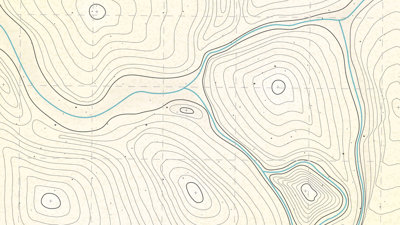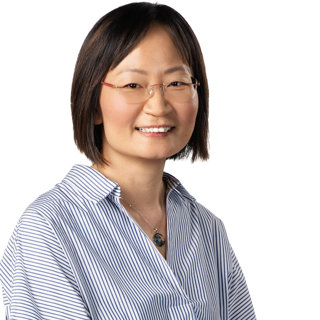How did you get to where you are now?
"I did my undergraduate degree majoring in Physical Geography and Master of Philosophy in Slope Geomorphology in the Department of Geography at the University of Hong Kong, and completed my PhD on Landslide Hazard Assessment in the Geography Department at Durham University.
"Since 2007 I have been working in the Arup Hong Kong Office as a Geomorphologist / Geologist. I progressed with my consultancy career and became a Chartered Geographer (specialising in geomorphology) in 2011 and a Chartered Geologist in 2012.
"Since 2013, I have delivered two professional modules for the Arup University on Air Photo Interpretation and Natural Terrain Hazard Assessment and Mitigation and won the Best Trainer of the Year award in the East Asia Region in 2014 and 2017 respectively.
"I was also appointed as a part-time Lecturer at the University of Hong Kong teaching Physical Geography, Geomorphology and Landslide courses in addition to my full-time work.
"With the two internationally recognised Charterships, accumulating experience and good performance, I was promoted three grades to a Senior Geologist / Geomorphologist in July 2011, January 2013 and April 2014.
"Between 2017 and 2021, I was based in the Arup London Office on a long-term assignment, providing input for a number of international geohazards projects and infrastructure projects in the UK.
"In August 2021, I returned to Hong Kong and took on project management roles in large-scale government site development projects as a Resident Engineer (Geotechnical).
"Since October 2023, I have been a full-time Lecturer in the Department of Geography and Resource Management (GRM) at the Chinese University of Hong Kong.
"I mainly teach undergraduate courses on Physical Geology, Geomorphology, Nature Conservation, and Natural Hazards, bridging theory and practice."
Was there anything particularly useful that helped you get into this role?
"Passion and genuine interest in what you do are important. Keeping a learning on-the-job attitude and being proactive in continuing professional development activities is also essential. In consultancy firms, getting chartered is a benchmark for further career development.
"The practical work experience in consultancy, spanning almost 16 years, is highly valued in academia, especially for my students seeking a suitable professional career."
What do you do as part of your job?
"While I was working in a consultancy firm, I provided specialist geomorphological and geological assessment in a variety of site-specific and large regional scale development and infrastructure projects including geohazard mitigation strategies.
"I have played a number of roles throughout my career. I was a Team Leader in the engineering geology team of Arup in Hong Kong and was also a Mentor / Supervisor for junior staff providing guidance on their career development towards Chartership, as well as being responsible for checking project deliverables.
"Technically I have been the project lead Geomorphologist / Geologist for a number of natural terrain hazard assessment projects, especially on landslides.
"Work duties include review and preparation of technical reports for feasibility and site development planning studies, aerial photo interpretation and field work.
"As a full-time lecturer and a faculty member, my main responsibilities are teaching six undergraduate and taught Master courses per academic year, leading local and non-local field trips, supervising final year theses and Master dissertations.
"I also act as an Academic Advisor for Geography major students, serving the Department (Member of the Admissions and School Partnership Committee, Staff-Student Consultative Committee, and Green Committee) and my College (Member of Environment Sustainability Committee, and Disciplinary Committee).
What skills and characteristics do you need for this role, apart from geographical knowledge?
"Geological knowledge and GIS skills are essential to support my role in assessing geohazards. In consultancy, getting good quality work done on time and within budget is important and technical competence develops through practice and learning from experience.
"When looking at getting into a more senior role, additional ‘soft skills’ such as leadership, management and communication become more essential, especially when there is a need to deliver project outcomes through teamwork.
As a lecturer, good presentation and communication skills are important. I conduct pre-course and mid-course surveys to understand students’ needs, learning progress and expectations.
"During lectures, I engage students via interactive activities where possible. Having students’ feedback helps adjust and improve teaching and learning effectiveness.
How does geography feature in your work/what difference does it make?
"I think geography is a broad subject that allows us to see the world in a more holistic way as it interacts with other disciplines. It trains our mind to analyse our environment in various spatial and time scales – a sense of ‘space’ through time.
"GIS is a useful tool that allows better understanding of a geographical location through analysing the various ‘different’ elements together. Geography is like a ‘hub’ that welcomes interactions with different disciplines that work well together."
What do you enjoy most about your job?
"While I was working in the consultancy, I enjoyed being able to apply what I learned in projects. I utilise my knowledge in physical geography and geomorphology to identify potential geohazards for development projects from various geographical locations which make work more interesting, especially when there is a chance to do a site visit or fieldwork.
"Currently, I am very happy to be back ‘home’, sharing my consultancy work experience with my students who are interested in learning how what they study can be applied in practice."
* This page was last updated in October 2025. The original interview was undertaken in 2019 and was correct at the time of publication. Please note that the featured individual may no longer be in role, but the profile has been kept for career pathway and informational purposes.

